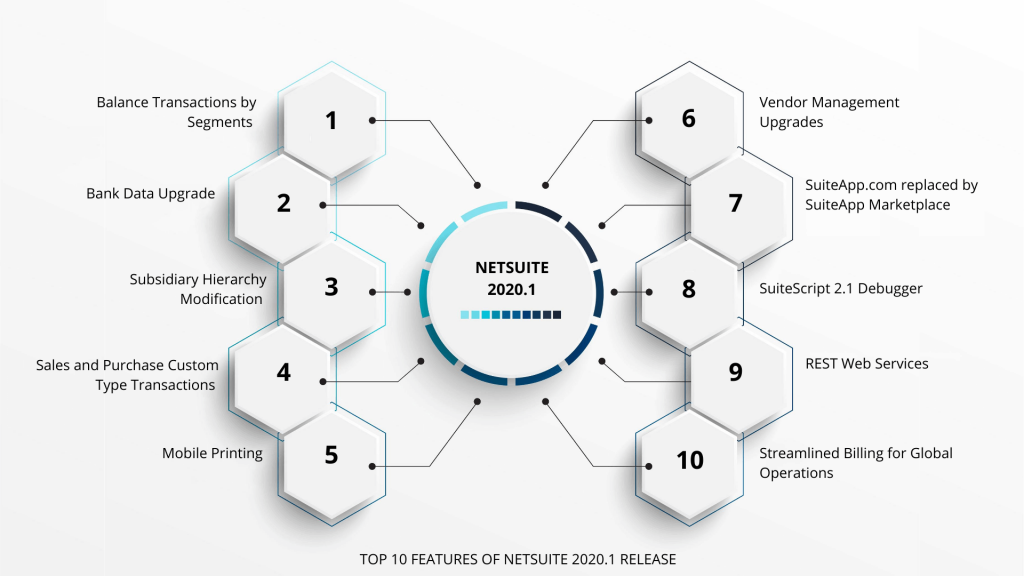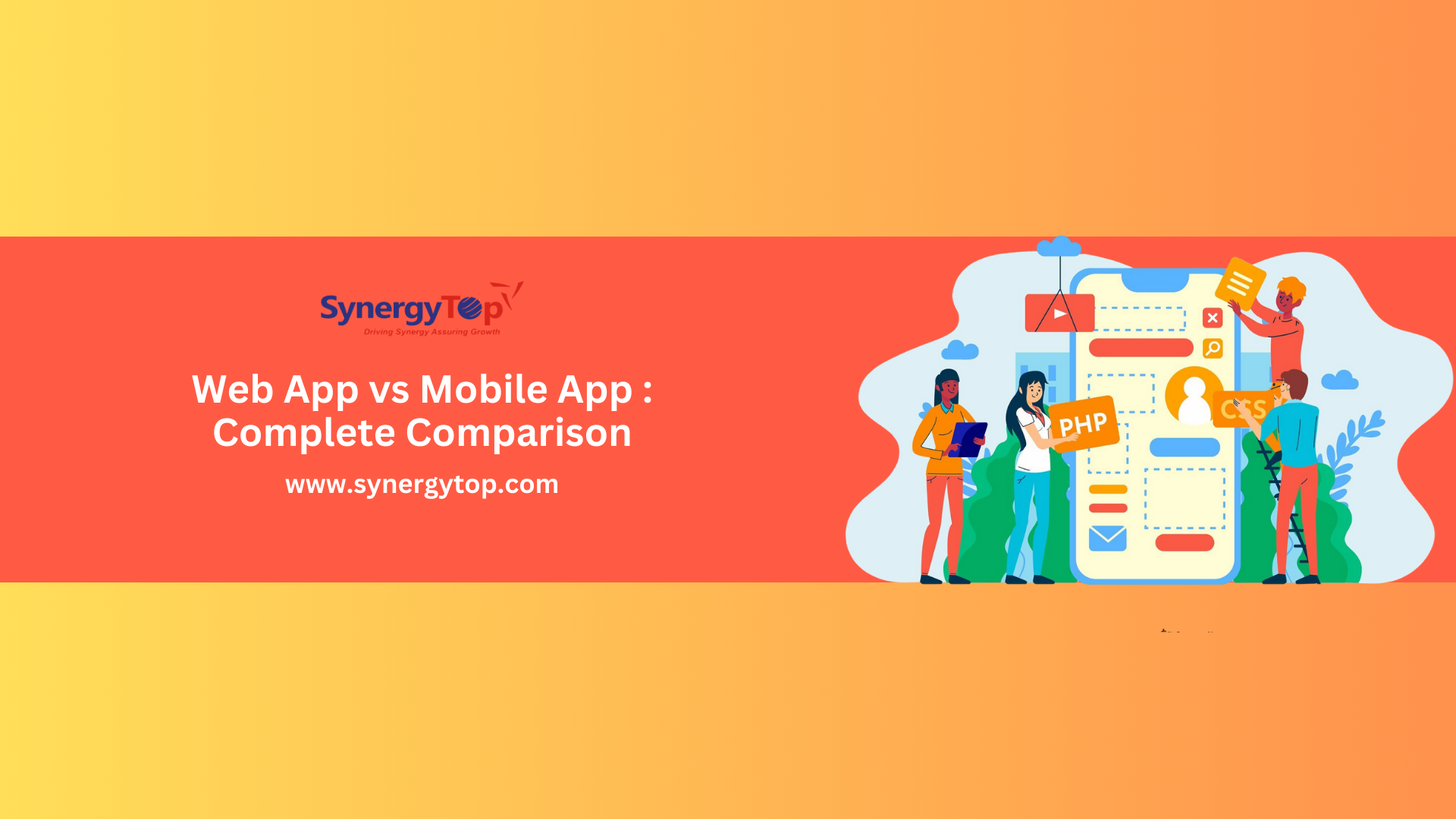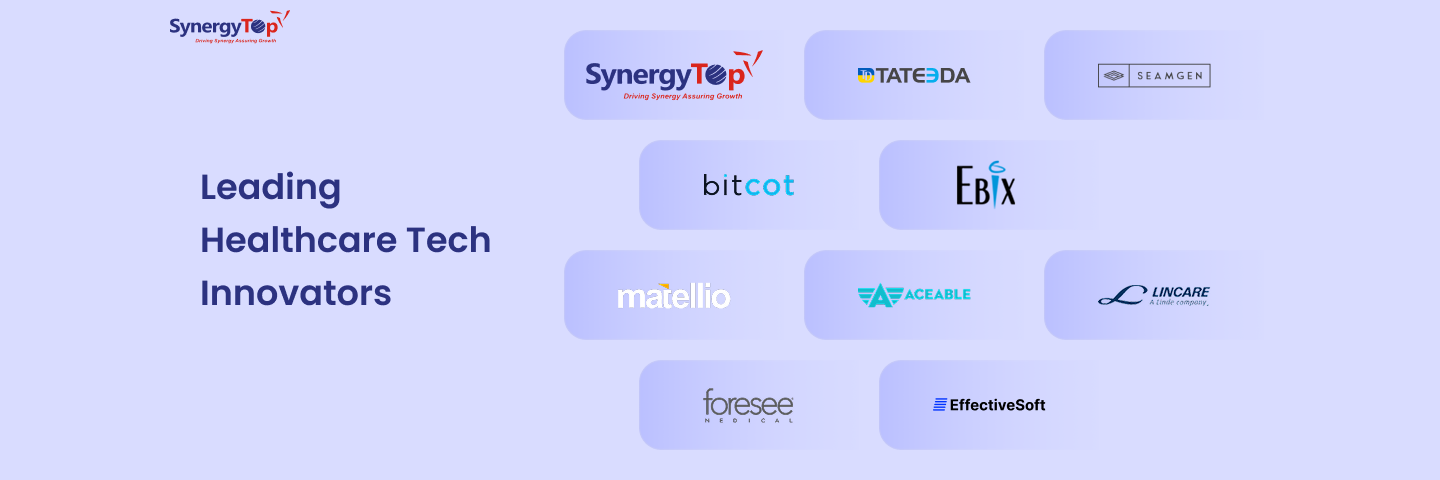This year NetSuite has brought in a whole new update to its cloud ERP features. There are various NetSuite modules like administration, employee management, accounting, banking, manufacturing, and more, to which the 2020.1 release brings a lot of enhancements and new features. These new improvements help in enhancing business processes, provide new functionality for businesses and cut out the need for customizations. To get the most out of new features and help you stay updated, we are bringing out 10 features worth knowing.
1. Balance Transactions by Segments – With the new feature of balancing segments, the transactions can be balanced by segments e.g. business unit or product line. In all the previous versions, the transactions were balanced by NetSuite general ledger for the company or for the subsidiary. Transactions for other dimensions can also be balanced by identifying custom segments. When the new process of balancing by segments is followed, the transactions will be automatically balanced by its balancing segments.
2. Bank Data Upgrade – In the 2020.1 version, the users can directly set up automatic bank feeds from the accounts of financial institutions either through the new Financial Institution Connectivity API or the new Bank Feeds SuiteApp. This eliminates the manual process of previous versions and permits companies to import bank data automatically and account balances on a daily basis. NetSuite has also enhanced the Bank Data Matching to aid the reconciliation process.
3. Subsidiary Hierarchy Modification – With appropriate permissions, the users can modify their subsidiary hierarchy structure. When businesses elevate a subsidiary in the hierarchy or change the headquarter subsidiary, then they need to modify their subsidiary hierarchy.
4. Sales and Purchase Custom Type Transactions – In 2020.1 version, two new transaction types – Sales and Purchase are brought forward thus enhancing the flexibility of custom transactions. With sales and purchase transaction types, custom transactions similar to cash sales, vendor credits, credit memos, invoices, bills and more can be created. With this feature, the companies can meet expectations of business verticals, comply with reporting requirements and can satisfy the specific requirements of customers.
5. Mobile Printing – This version of NetSuite enables mobile printing functionalities. It is a new integration available with PrintNode which make the users capable to send print requests from their mobile device to the warehouse printer. To enable mobile printing, a PrintNode account for the warehouse printers need to be configured.
6. Vendor Management Upgrades – The updated vendor management features include-
- One or more vendor prepayments can be linked to a purchase order.
- Vendor prepayments are automatically applied to future vendor bills and hence no manual intervention is required.
- To customize and print the vendor prepayment vouchers, the NS Advanced PDF and HTML feature can be used.
- The vendor bills can now also be approved by employee centre role.
7. SuiteApp.com replaced by SuiteApp Marketplace – In NetSuite 2020.1, the SuiteApp Marketplace has replaced the SuiteApp Listing page. The SuiteApp Marketplace can find and install SuiteApps designed by using SiteCloud Development Framework. The administrators and users with SuiteApp Marketplace permission can access it by going to Customization > SuiteCloud Development > SuiteApp Marketplace. The users can install SuiteApps which support their version of NetSuite account. They can also upgrade and view the status of SuiteApp after an upgrade or installation.
8. SuiteScript 2.1 Debugger – The SuiteScript 2.1 Debugger, permits the developers to debug scripts using chrome DevTools. This functionality is similar to debugging JavaScript when Google Chrome is used. This feature is accessible to all the SuiteScript developers and can be used only on the Chrome Browser. It supports on-demand scripts and server scripts in your account.
9. REST Web Services – The web services of REST assist the external applications to integrate with NetSuite. It supports record collection filtering, extended CRUD (Create, Read, Update, Delete) operations, custom records, and executable record level actions.
10. Streamlined Billing for Global Operations – This version benefits the companies involved in global billing operations with a streamlined bill from a single customer record. This gives a clear view of customer relationships and the companies can have better revenue trace-through. The software companies with operations across multiple countries can benefit from it the most.
NetSuite is #1 Cloud ERP Software NetSuite is a cloud-based Enterprise Resource Planning software which comes along with the functions vital to your business. Learn why you should go for Oracle NetSuite ERP for your business here – https://synergytop.com/blog/why-you-should-choose-oracle-netsuite-erp-for-your-business/.

Looking for NetSuite Expertise?
Before upgrading to NetSuite release 2020.1, you should internally prepare your environment to make this transition to do a better impact on your system. If you need more information or guidance to get ready for the new release, check out these helpful NetSuite resources –
- https://www.netsuite.com/blog/netsuite-2020-release-1-delivers-automation-integration-and-insight-enhancements-that-will-enable-businesses-to-grow
- https://www.netsuite.com/portal/landing/2020-2/main.shtml
At SynergyTop, the team of NetSuite ERP Consultants and SuiteCloud Developers are here to help you make the most of your implementation. We can talk to you about how it would work in your specific environment and make sure it’s the best choice for you. Write to us at contact@synergytop.com
















